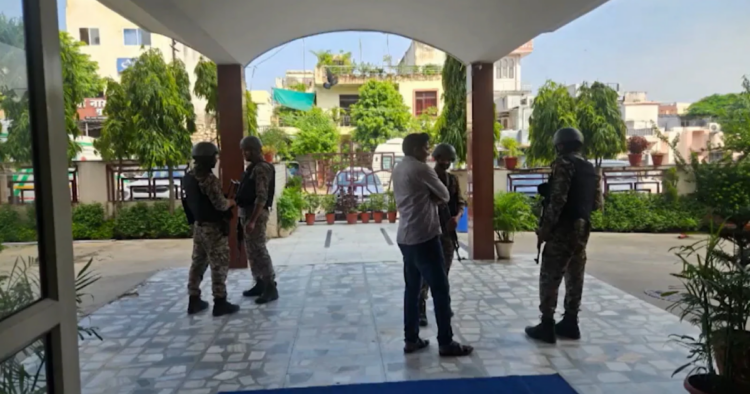On Sunday morning, several hospitals in Jaipur were thrown into a state of panic after receiving bomb threats via email. Among the hospitals targeted were CK Birla Hospital and Monilek Hospital. The threatening emails were reportedly received around 7 am, sparking immediate concern for the safety of patients, staff, and visitors.
The emails contained alarming claims that bombs had been planted under hospital beds and in bathrooms. The sender also mentioned that “terrorists ching and cultist” were behind the planned “massacre,” according to sources from the Press Trust of India (PTI). These threats led to swift action from the authorities.
VIDEO | Many hospitals in Jaipur, Rajasthan received bomb threats. The hospitals got e-mails at 7 am in the morning. The hospitals which received bomb threats include CK Birla Hospital and Monilek Hospital. The police team and bomb disposal squad reached the hospitals immediately… pic.twitter.com/AjMGvj3mQC
— Press Trust of India (@PTI_News) August 18, 2024
Teams of police officials and bomb disposal squads were dispatched to the hospitals to conduct thorough searches. The security personnel worked diligently to ensure that the premises were safe, combing through every corner of the hospital, including patient rooms and common areas. The scare caused significant disruption, with some services at the hospitals temporarily halted to prioritize safety.
This incident in Jaipur follows a series of similar bomb threats in other parts of the country. Just a day before, on Saturday, a bomb threat was reported at Ambience Mall in Gurugram, Haryana. Despite an exhaustive search, no suspicious objects were found, and the threat was ultimately deemed a hoax.
Additionally, on the same day, a prominent mall in Vashi, Navi Mumbai, was evacuated after receiving a bomb threat via email, which also turned out to be false.
These recent incidents are part of a growing pattern of bomb threats across India. In May, around 250 schools in Delhi and the National Capital Region (NCR) received similar threats, leading to widespread evacuations and a massive response from authorities. The police, along with various agencies like the Bomb Disposal Squad (BDS), National Disaster Response Force (NDRF), and Fire CATS, were mobilized to handle the situation. Fortunately, no bombs were found, and the threats were later declared as hoaxes.
The police have indicated that the emails in these cases were sent using a virtual private network (VPN) that routed data through foreign servers, making it difficult to trace the origin. In the Jaipur case, it was found that the email was sent using a mailing service from a Russian company, further complicating the investigation.
In light of the increasing number of bomb threats, the Union Home Ministry has emphasized the need for detailed protocols and standard operating procedures (SOPs) to handle such situations. The ministry has also recommended enhancing security measures, including the installation of CCTV cameras and regular monitoring of emails, especially in schools and public places.
ALSO READ: “ISIS Planned Bomb Attack on Taylor Swift Concert in Vienna, Shows Canceled”

















Comments